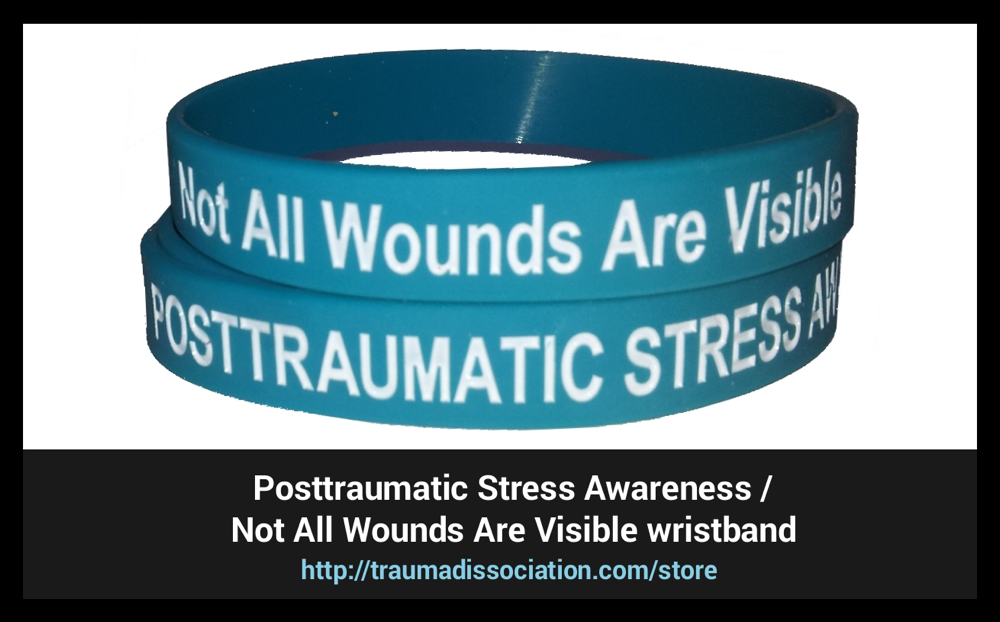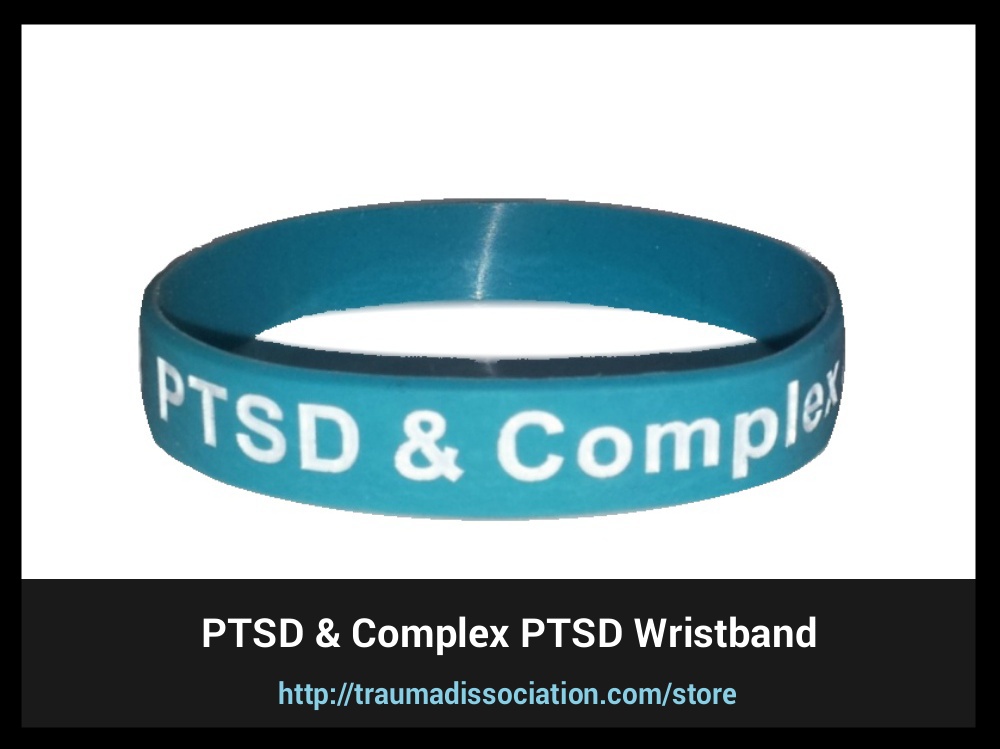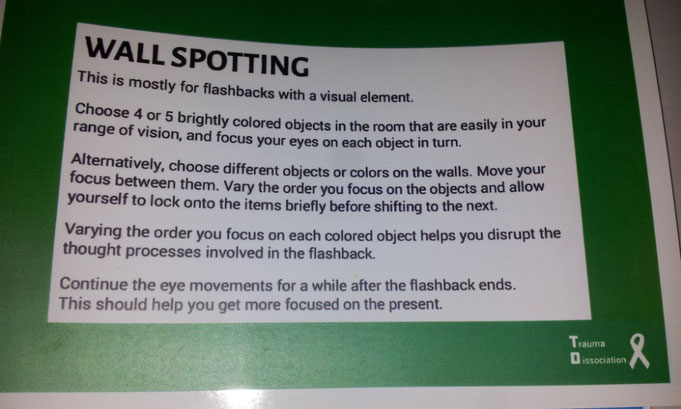PTSD Items
.;
Posttraumatic Stress Disorder / Not All Wounds Are Visible Wristbands
High quality teal silicone wristbands displaying the words POSTTRAUMATIC STRESS DISORDER on one side and Not All Wounds Are Visible on the other. Unlike many wristbands, the letters are actually formed from white silicone and moulded into the wristband, rather than printed on top, this means the words will not wear off over time.
Adult (202mm) only.
These wristbands are 100% silicone, and do not contain any latex.
PTSD and Complex PTSD Wristbands
PTSD & Complex PTSD
High quality teal silicone wristbands displaying the words PTSD & Complex PTSD in white. Unlike many wristbands, the letters are actually formed from silicon rather than printed on the wristband, which means they will not wear off over time.
Size: Adult (Large)
These wristbands are 100% silicone, and do not contain any latex.
PTSD & Complex PTSD wristbands are also sold in Twin packs for a special price.
These wristbands have been produced to raise awareness of PTSD resulting from any kind of trauma, and are the first in the world for Complex PTSD. They use the official PTSD shade of teal (Pantone 320), which is brighter and contains more blue than the generic teal wristbands.
Why do we sell PTSD Wristbands?
We decided to create PTSD wristbands because we could not find any on sale for a reasonable price. Many charities for veterans produce their own wristbands but these usually just contain the name of the charity and do not mention PTSD. At present, there is international charity just to support people with PTSD - options are limited to wristbands for charities who support abuse survivors or injured military veterans, or the generic dark teal wristbands also used for other causes like Ovarian Cancer and Sexual Assault/Sexual Violence.
Teal Ribbon Lapel Pins
These are easily found on other websites and compliment the wristbands.
PTSD Wristband Color

PTSD wristbands use the official shade of teal for PTSD (Pantone number 320), which is lighter, brighter and contains slightly more blue than the generic teal wristbands.
The shade of teal matches that used in our Dissociative Identity Disorder/Multiple Personality wristbands.
These PTSD awareness dog tags are available either with a long chain (as a single dogtag, or as a pair), or with a keyring.
Grounding Cards for Flashbacks
These flashback grounding cards are are suitable for therapists as well as people dealing with trauma symptoms. They describe different techniques for coping with - or escaping from - flashbacks. This colorful set of cards can help you learn different grounding techniques, which may helpe you gain a greater sense of control over your flashbacks.
Flashbacks are a hallmark symptom of PTSD and involve a sense of re-living a traumatic experience from the past. This is both distressing and disorienting.
Each set of grounding cards is printed using thick, glossy card, with each card measuring approximately 15x10cm (4" x 6") in size - making them an easy size to hold and large enough to read the information. Cards will not smudge if they get damp and they come in a similar sized clear plastic bag to keep them together.
The techniques are best practiced in advance, so that they are already familiar for when a flashback occurs. If you have significant concentration problems you may find the information hard to grasp, a friend or therapist may be needed to help you try the techniques or to pick which are most suitable for you.
Grounding techniques can also be useful in reducing dissociation, including experiences associated with depersonalization and derealization. Dissociation is a common experience in many people with Posttraumatic Stress Disorder, and of course in Dissociative Disorders. Dissociation takes many forms, and grounding may be helpful in dealing with feeling 'spaced out', not connected to the world or your physical body, and feeling unreal.
Disclaimer: These cards are not a substitute for professional help, and should not be considered advice or a 'cure'. You should not attempt any techniques that you do not feel comfortable with. Reliance on these cards is soley at your own risk. We will not be liable for any harm or negative consequences as a result of the information or suggestions provided on the cards or elsewhere on this website.
More information on grounding and coping techniques can be found on the Living with Trauma page.







